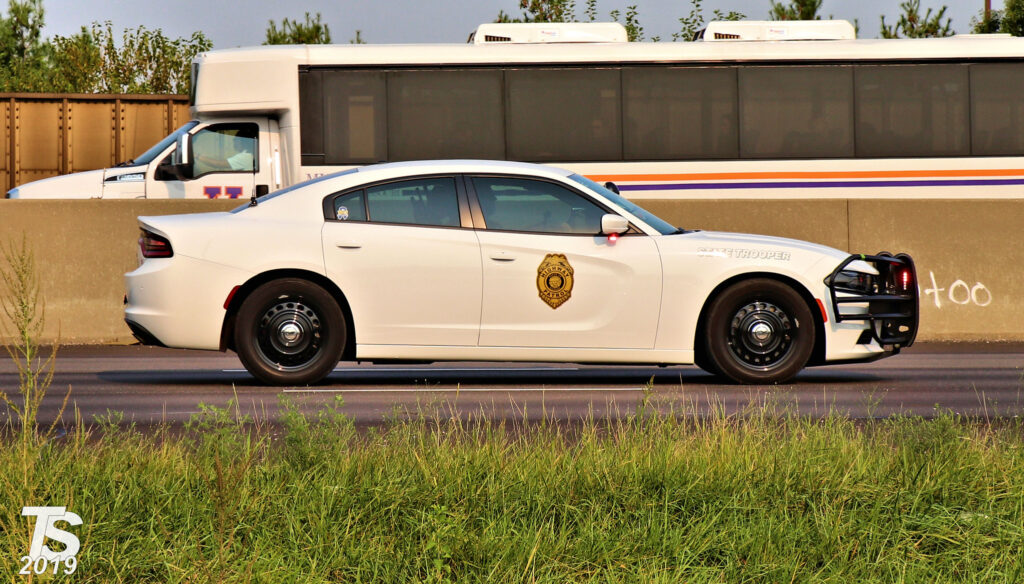Kansas Highway Patrol Can No Longer Use “Kansas Two-Step”

Good news for out-of-town motorists: the Kansas Highway Patrol (KHP) can no longer use the “Kansas two-step” technique to question drivers and search their vehicles. According to The Associated Press (AP), U.S. District Judge Kathryn H. Vratil granted a permanent injunction against the practice. This means that motorists do not have to worry about secondary searches stemming from routine traffic stops. In this blog, the Kansas car accident lawyers from Patterson Legal Group explain what the Kansas two-step is, why it was banned, and what the future holds for the practice.
What Is the Kansas Two-Step?
The Kansas two-step is a technique used by the Kansas Highway Patrol during routine traffic stops. After stopping a motorist, the officer backs away from the vehicle and returns. KHP officers ask about the driver’s plans and reasons for being in Kansas. Next, the officer tries to get the motorist to voluntarily give information that can–and has–led to the search of a vehicle. The information and search can lead to violations completely unrelated to the initial stop.
Why Was the Practice Banned?
Opponents of the Kansas two-step claim that the practice violates a motorist’s Fourth Amendment rights–specifically protections against unreasonable searches. Officers have used the technique to get motorists to incriminate themselves, leading to vehicle searches. As an example, a KHP can use the technique after a simple traffic stop, ask a few questions that lead them to believe that the driver is in possession of marijuana, and cite the motorist for possession with intent. The driver may be coming from Missouri, where medical and recreational marijuana is legal, and may not know that the substance is illegal in Kansas for medicinal and recreational purposes.
What Does This Mean for Out-of-State Drivers in Kansas?
Out-of-state motorists can breathe a sigh of relief, for now. The ban of the Kansas two-step means that they will be treated fairly and clearly. With the two-step ban in place, KHP officers are now obligated to tell motorists when a traffic stop is over and when no further questions will be asked.
Many drivers get intimidated while being pulled over by law enforcement. Not having to worry about coercive questioning and receiving clear instructions from KHP officers should make getting pulled over less daunting.
Kansas Highway Patrol Still Wants to Use the Kansas Two-Step
KHP is appealing Judge Vratil’s ruling. The agency claims that the practice is a useful tool for finding criminal activity. According to The Kansas City Star:
Kansas Highway Patrol Superintendent Erik Smith will argue the Fourth Amendment, which protects against unreasonable search and seizures, does not require officers to inform motorists they are free to leave at the end of a stop for the additional questions to be consensual, according to a court document filed with the 10th U.S. Circuit Court of Appeals.
While the Kansas two-step is banned for now, it will likely take months or possibly years before a final ruling on the practice is issued.
In a Car Wreck With an Out-of-State Driver?
The Kansas injury attorneys at Patterson Legal Group hope that you have a better understanding of the Kansas two-step ban. Kansas highways are filled with thousands of out-of-state drivers every day. Should you suffer injuries in a collision or crash with an out-of-state motorists then contact us for immediate assistance.
You can reach Patterson Legal Group by phone at (888) 687-2400 and online through our encrypted contact form or connecting with our LiveChat agents. For more than 25 years, Patterson Legal Group has helped injury victims throughout Kansas, Missouri, and Oklahoma receive maximum settlements from insurance companies. Our experienced and accomplished trial lawyers have recovered more than $250-million in settlements for thousands of injury victims. Reach out to us today and take the first step towards the settlement that you deserve.





